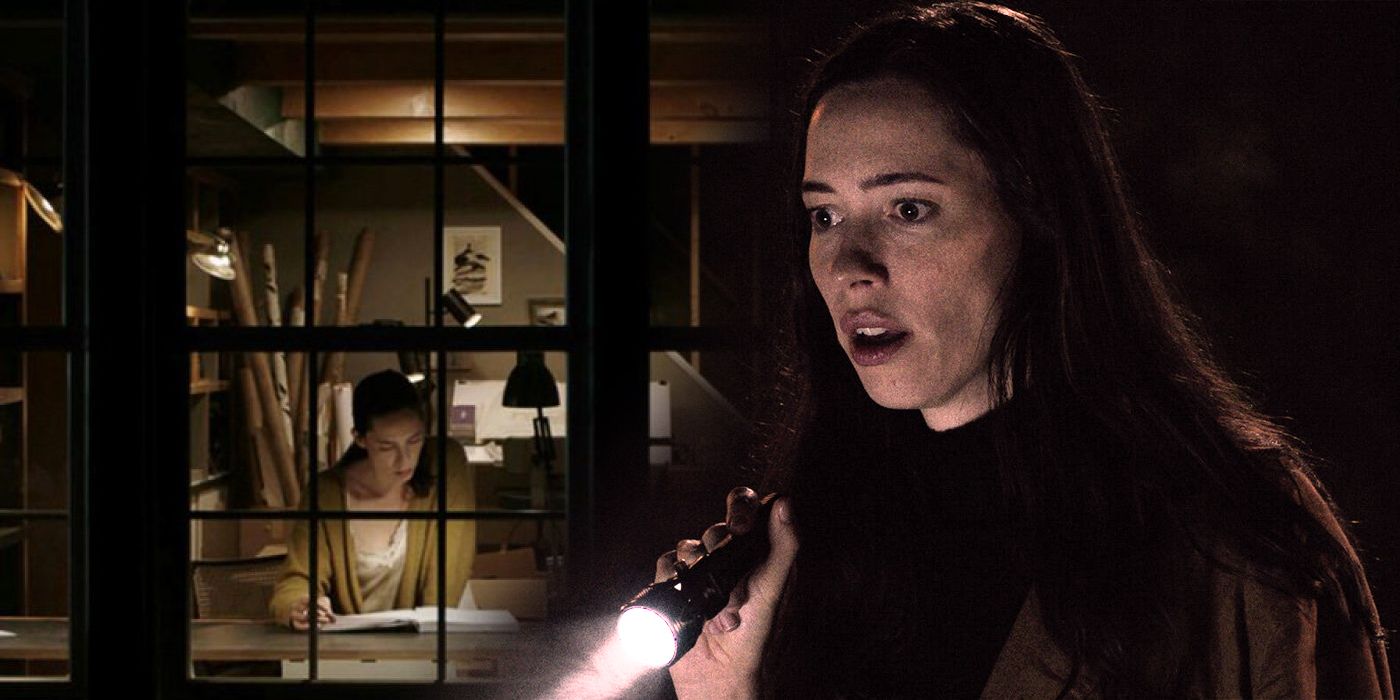
The new horror movie The Night House is an unsettling blend of ghost story and psychological terror — the kind of film that leaves audiences wondering what the ending really means. There are many flavors of horror movies that are designed to please different segments of the quite vast horror fanbase. When it comes to scare factors though, there tend to be two basic types. The first, which is often what Hollywood studios go with, mostly relies on jump scares to startle the audience and keep them on their toes. The second is when a horror movie takes a more cerebral approach, building its scares up slowly, and going for creeping out the viewer over startling them.
The Night House, helmed by future Hellraiser reboot director David Bruckner, is definitely much more in line with that second variety. While some jumps are featured here and there — and are usually effective in their own right — most of The Night House is designed to unsettle and disturb. In some ways, it's a fairly old school ghost story during its first act, but as more and more secrets are revealed, things take a sharp left turn into the occult and the potentially horrifying reality of what happens after death.
Befitting its more psychological horror bent, The Night House's story, and especially its ending, are open to multiple interpretations. There's a more literal way of looking at things, in which one takes the story at close to face value, and more symbolic interpretations of what the plot and characters are meant to convey. Either way one looks at it, the critically acclaimed The Night House hides many secrets.
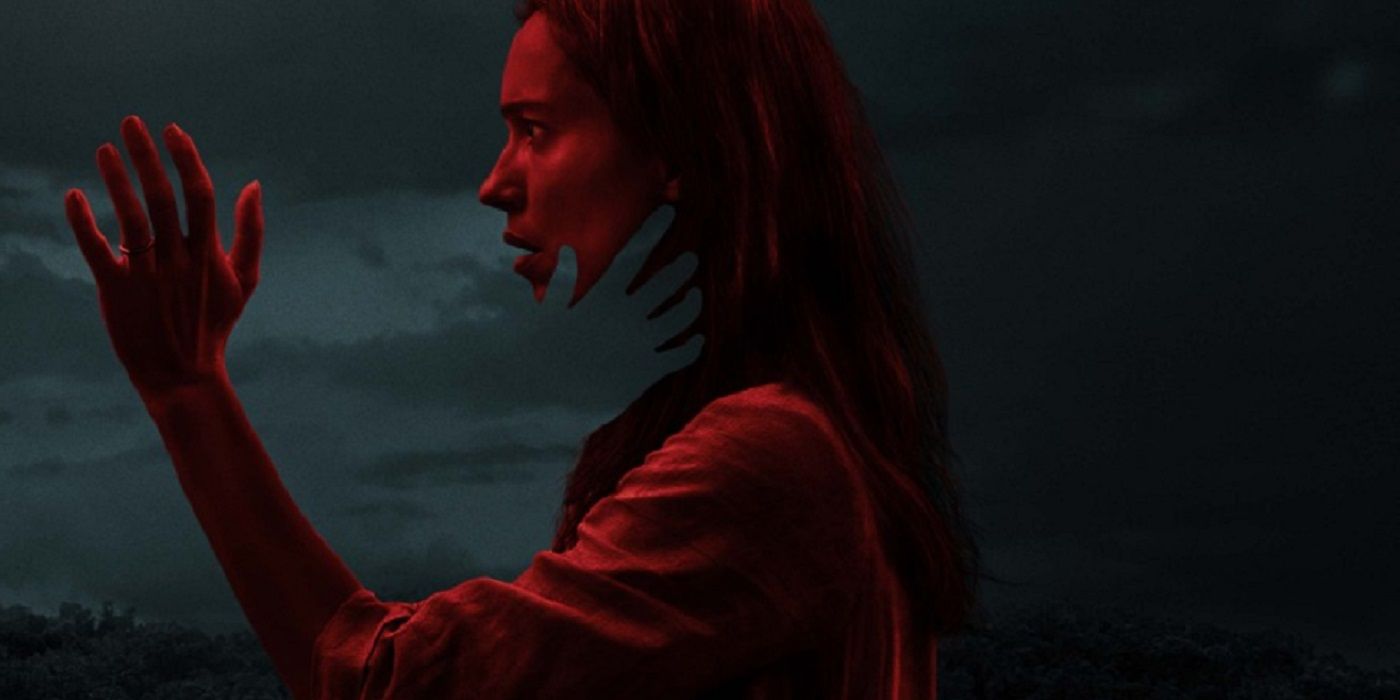
The Night House begins shortly after Owen (Evan Jonigkeit) has suddenly committed suicide, with his wife Beth (Rebecca Hall) trying to pick up the pieces of her life as best she can. As the movie goes on, it's revealed that Owen had a double life that involved him wooing and murdering women who resemble Beth in a house across the lake that's a mirrored version of their home. However, it turns out he did this due to a mysterious creature dubbed Nothing, who Rebecca encountered when she briefly died after an accident as a teenager. She didn't remember there being anything on the other side — but she was wrong.
Nothing tried to push Owen into murdering Beth, sending her back to the other side, but he refused, killing the other women in an attempt to trick the creature. This serial killer strategy eventually stopped working, so Owen killed himself instead. The Night House ends with Nothing taking Beth out on the lake in their small boat to try and get her to replicate Owen's suicide. She almost gives in, but eventually puts the gun down, choosing to live on. The movie then goes to credits, leaving it ambiguous as to whether Beth has truly escaped Nothing, or if the entity will try to claim her again in the future.
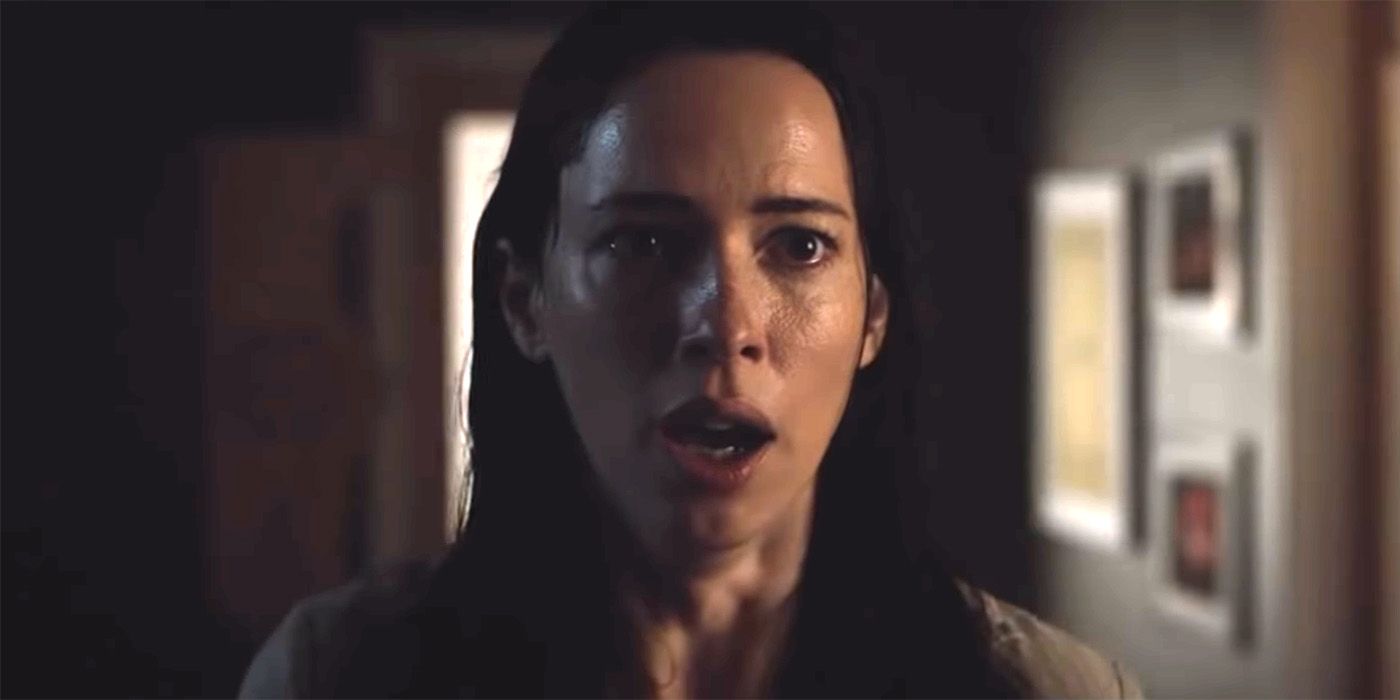
While the Nothing proves to be a scary and formidable antagonist when one looks at the story of The Night House literally, there's a reality-based monster that truly forms the center of the narrative. Few things are certain in life, but one of them is that it will one day come to an end. Everyone and everything will one day die, and dealing with the death of a friend or loved one can be the hardest thing most people ever have to do. That's even more true when someone loves their spouse, who many see as their other half, their best friend, the person meant to grow old alongside them and co-navigate their journey through life.
When The Night House opens, it's clear that Beth is not handling her husband's suicide well, and while that's entirely understandable, it also lends credence to the idea that her friends would doubt her story about a potential haunting, as she's clearly not in the best state of mind. It's also grief that drives Beth's quest to dig further and further into her husband's secrets, despite being repeatedly warned away from doing so, and each new revelation making things worse. Beth can't stand the thought that her husband has not only left her, but done so without telling her the whole truth. Grief essentially drives the story, and while ghosts, demons, and the Nothing might not be a real-life threat, grief will be for everyone someday.
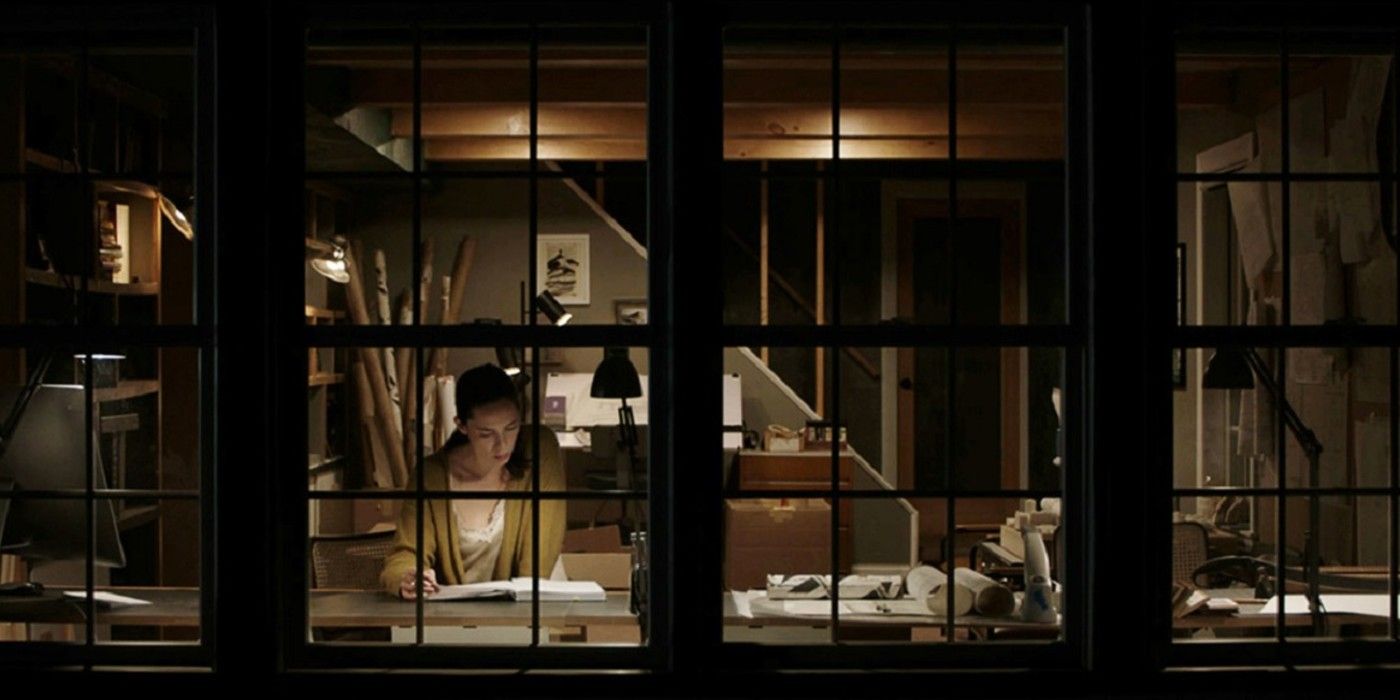
Those viewers who prefer their horror movie endings to tie things up in a neat bow are sure to leave The Night House disappointed, as Bruckner's film leaves many aspects ambiguous, or not quite resolved. What the Nothing that so desperately wants to reclaim Beth after meeting her so briefly decades before actually is is one such unanswered question. It's possible that the creature is Death itself, but it seems odd that Death would become obsessed with a particular person like that. Nothing could be a demon, but where it takes Beth at the end, a red-lit, dual-mooned dark inversion of the real lake, doesn't seem to be Hell either. If anything, the barren place seems like some sort of purgatory between life and the afterlife.
This idea is supported by the fact that when Beth asks the Nothing where her husband is — since the creature has taken his form — it responds that Owen has gone somewhere else. Whether that's Heaven, Hell, or something not tied to traditional Christian theology is unclear, but his soul isn't where they are. That makes it most likely that the Nothing — so named because Beth said she saw "nothing" while she was dead, with Owen putting in his suicide note that "nothing" was after Beth — is something that resides in this void between worlds. One imagines that's quite lonely, and clearly, something about Beth attracts its desire.
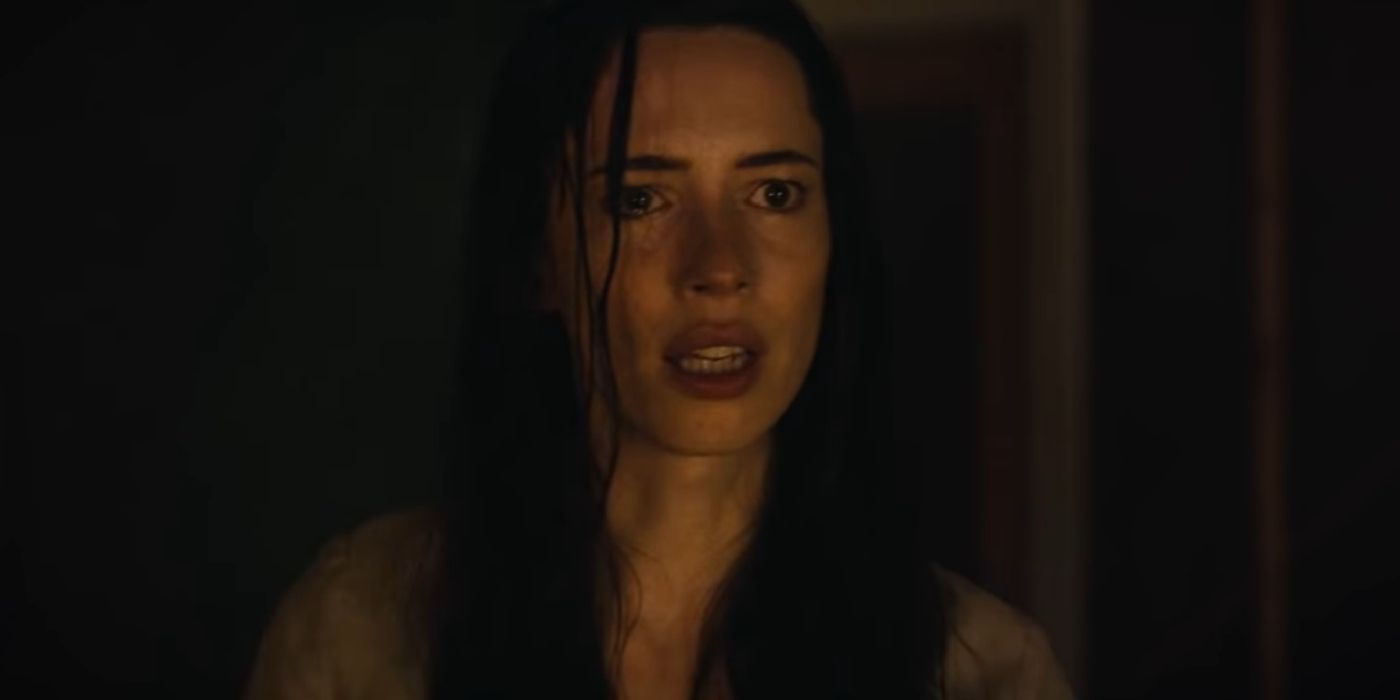
While it's interesting to speculate about what the Nothing might be, there also seems to be a clear non-literal message attached to The Night House's ending, one that doesn't even really need to acknowledge anything supernatural in order to work. Beth begins the movie in the throes of grief, and as mentioned previously, it's the grief that drives her onward toward the truth. It's also grief that the Nothing tries to use to get her back, with her believing for some time that the "spirit" visiting her is actually Owen's.
As sad as it is to think about, many people do prove incapable of withstanding the onslaught of grief, and end up shutting down emotionally, or even worse, taking their own life out of despair. With that in mind, the ending sequence with the Nothing and Beth on the boat, with it trying to convince her to shoot herself, functions as a metaphor for this battle against letting grief take full hold of one's mind. Nothing is the embodiment of Beth's grief for her husband, and it's telling her there's no point in going on without him, and that she'd be better off giving up. In the end though, despite her pain, Beth decides not to kill herself, to go on living, to reunite with the living friends who were looking for her. As dark as The Night House is overall, that's actually a really uplifting sentiment. Of course, one wonders what happens to the bodies of Owen's victims now.
from ScreenRant - Feed https://ift.tt/3ktMtQG

No comments:
Post a Comment